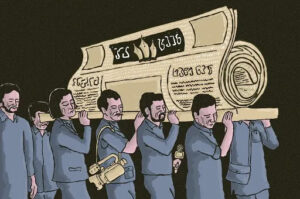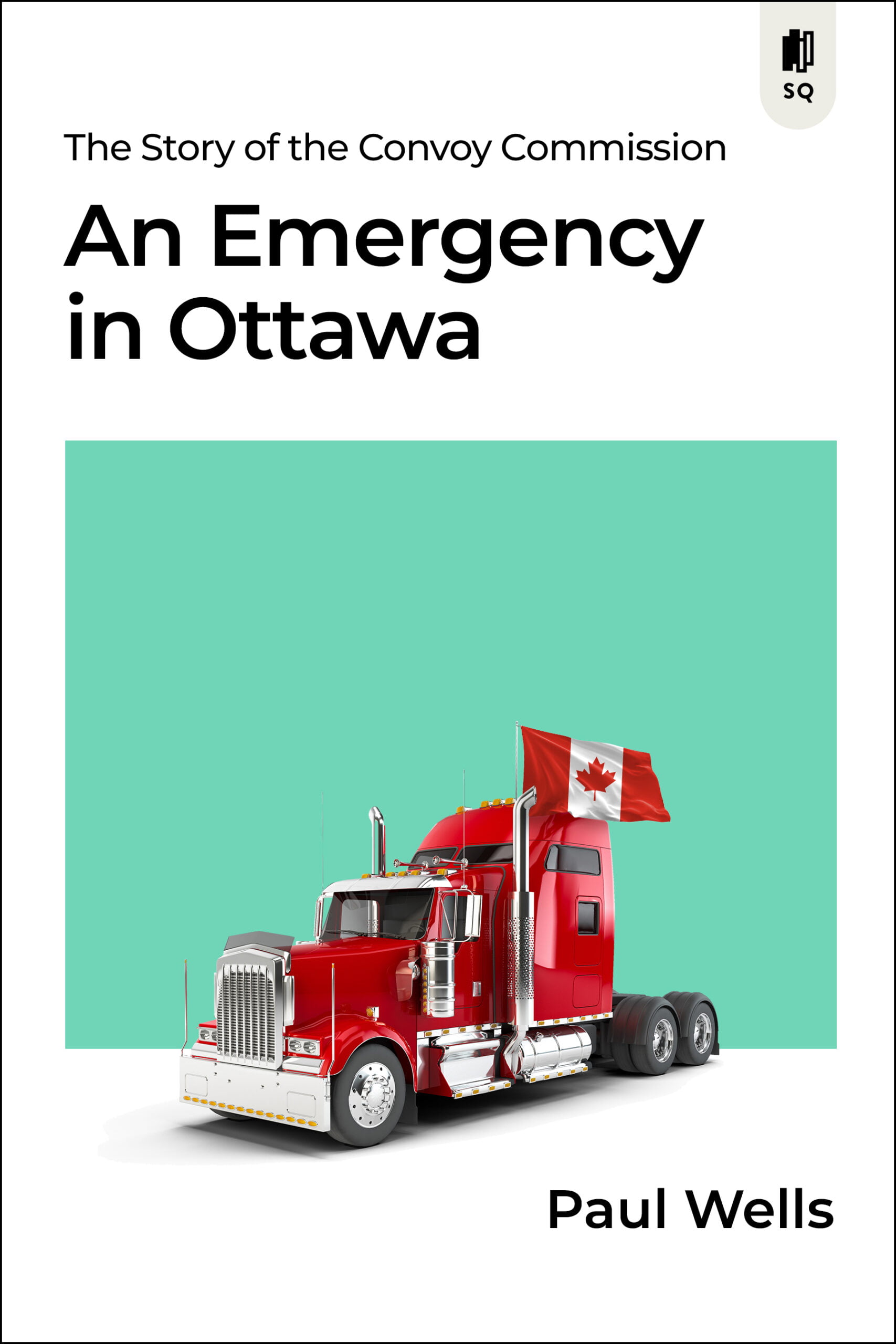
Disappearing media
This is the 199th edition of SHuSH, the official newsletter of the Sutherland House Inc.

An antidote, and a guest newsletter, from author Paul Wells
An antidote, and a guest newsletter, from author Paul Wells
Editor’s Note: I’m on hiatus until next Friday but wanted to share something with SHuSH readers.
Long-form journalism has all but disappeared from our remaining newspapers and magazines. One thing we lost with the decline of long-form is the opportunity to look deep into a subject and give serious consideration to perspectives different from our own. We tend in short-form journalism and social media to either start with or run directly to for/against conclusions. As Paul Wells says below, those most eager to “debate” are least likely to even hear contradictory evidence.
Sutherland Quarterly, which we launched last year, is intended, in a modest way, to help fill the gap left by the decline of long-form. It is a series of essays on current affairs by some of Canada’s best writers, published individually as books and also available by annual subscription. Paul Wells, one of Canada’s leading political journalists, is the author of An Emergency in Ottawa: The Story of the Convoy Commission, the second edition of the quarterly. He wrote the following edition of his newsletter before his opening-night appearance at the Ottawa writer’s festival last night. It is a response to a normally intelligent critic who chastised him for not playing the for/against game. It is an important reminder that sometimes the most valuable thing journalists and essayists can do is add context, depth, and nuance to critical conversations.
If you haven’t checked out Paul’s newsletter, you should. It’s here. Here’s Paul:
I’m delighted to be at the Ottawa International Writers’ Festival on Thursday for a panel discussing the Freedom Convoy. Ottawa readers: tickets are still available. Obviously part of the point of the event, and of writers’ festivals everywhere, is to drum up interest for books. Here’s mine. You can buy direct from the publisher, Sutherland House, at that link, or from one of Canada’s great independent booksellers or this big chain or that.
An Emergency In Ottawa has been on sale for three weeks. Sales have been strong, online customer reviews generous. Non-fiction writers wish all the time that there were more broad public conversation about their books. I feel it, too, although I didn’t expect more. Almost no publications discuss books any more. (The books keep getting published, and read, just not debated.) And mine’s odd. And slim. And the national consensus for turning the pagethat followed the February publication of Paul Rouleau’s Public Order Emergency Commission report was so resounding you could hear the thud. I sure did.
But hundreds of you have already read An Emergency In Ottawa. More soon will. I wanted to share some thoughts about what I was trying to do with this book.
• Partly this is because I have colleagues who think about writing books, and I always want to encourage that urge. Perhaps demystifying the process will help. (This post is filed under the “To the Trade” rubric of this newsletter, reserved for journalism shop talk, for a reason.)
• Partly it’s because this 100-page essay is an odd duck I’ve grown fond of. I want to make a case for it.
• Partly it’s because one reader with sterling credentials didn’t like it much. I think he deserves a response.
The reader is Wesley Wark, a veteran academic historian who’s advised prime ministers on national security. His Substack newsletter has been in my Recommendations list for months, and vice versa. His take on my bookappeared the day after publication in April:
Wesley Wark’s National Security and Intelligence Newsletter

This is the 199th edition of SHuSH, the official newsletter of the Sutherland House Inc.

There was an interesting piece in the New York Times a week or so ago about James Daunt (above), the incoming chief executive of Barnes & Noble, the most important bookstore chain in the English-speaking world. It didn’t quite get to the nub of the matter. Barnes & Noble has

The world of non-fiction from Sutherland House ( and Beyond )